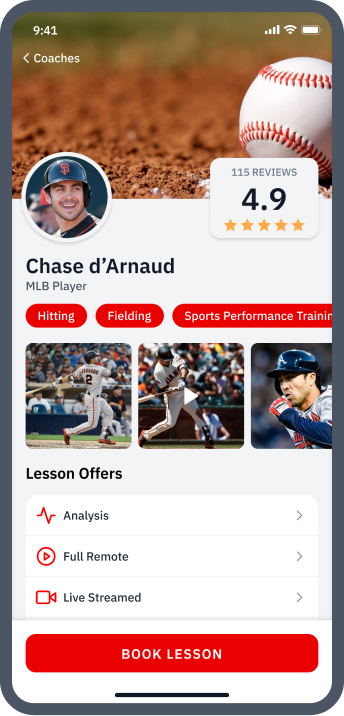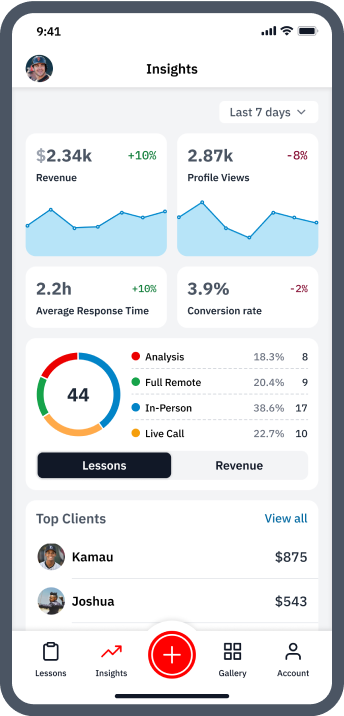14 Proven Ways to Upgrade Your Baseball or Softball Coach Communication Today with Advanced Public Speaking Tactics

When you first started coaching, you probably didn’t think much about public speaking.
As a former player making the transition to team coaching or even private lessons, or a parent who volunteered for their kid’s Little League team, oratory skills were likely the last thing on your mind.
But If you want to be a great baseball or softball coach, you have to be a great public speaker. Period.
It doesn’t matter what age group you’re working with, how many people you’re addressing, or the setting you’re in. If you aren’t good at speaking in front of others or even large groups of people, your communication – and your coaching – will suffer.
So what do you do if you’re a baseball or softball coach and you hate public speaking? Maybe it’s even one of your biggest fears?
First and foremost, you wouldn’t be alone.
Top researchers report that fear of public speaking is one of the most common phobias, affecting up to 30% percent of the population.
Much of this fear of public speaking is related to our fear of being judged by others.
But all this fear clouds the fact that giving a speech is a chance to share your message or express your opinion for the benefit of ballplayers on and off the field.
Even if it’s one of your biggest fears, you’ll have to master speaking in some capacity to be an effective baseball or softball coach.
In this SeamsUp guide, you’ll get 14 proven ways to upgrade your baseball or softball coach communication today with public speaking.
- Verbal Tactics
- Preparing Your Speech
- Warming Up
- Speech Structure
- Don’t Apologize
- Nonverbal Behavior
- Make the Most of Your Fear
- Stage Presence
- Inclusive Language
- Combine Emotion and Credibility
- Use Problem-Solving
- Be a Storyteller
- Rehearse
- Find Inspiration
Before we dive into the tactics for better public speaking, let’s discuss why it’s so important for baseball and softball coaches in the first place.
Wanna grow your baseball or softball coaching brand?
Get connected to new local and online lesson clients—along with all the tools you need to scale.
Download the free app

Why Public Speaking is Important in Baseball or Softball Coach Communication
There are three contexts baseball and softball coaches will find themselves in that require solid public speaking skills:
- Addressing your team or their parents at official events like team meetings, pre-game talks, team practices, banquets, etc.
- Addressing players or their parents at skills clinics and camps
- Addressing athletes or parents during one-on-one training sessions or meetings
In each situation, you need proper speaking skills to get your message across.
You’ll be expected to give speeches to your team and their parents at official events and your team will rely on you for a pep talk before and after games.
If you work at skills clinics or camps, you have to be more like a teacher in front of a classroom, explaining drills clearly and instructing the group of players as they move through the camp’s stations. Camps usually require you to address the parents of the players at the end of the day too.
Finally, you might not think you need public speaking chops for an individual lesson with an athlete. However, these sessions also require you to speak eloquently and concisely so you can transfer the appropriate knowledge to your clients.
There may be other contexts in which you have to speak publicly as a baseball or softball coach, but these three are the most common.
Now that you know what to expect, let’s look at how you can improve your public speaking skills with these 14 proven strategies.

1. Verbal Tactics
Verbal tactics are methods you can use to make your speech more interesting.
Here’s some of the best ones.
Comparisons
One common way to do this is with figures of speech, like metaphors, similes, and analogies.
These comparisons are especially helpful when you’re trying to break down a complicated concept for your players. Athletes are more likely to remember something when you explain it with a metaphor.
Lists
Another verbal tactic to take advantage of is the use of lists.
When you can, present things in groups of three. When people read or hear items in three’s it makes those things feel complete, and thus easier to remember.
Rhetorical Questions
You should also incorporate rhetorical questions into your speaking style.
When you ask this type of question, it’s not because you want an answer, it’s to create a dramatic effect or make your players think.
You probably already rely on rhetorical questions without realizing it.
Questions like, “Do you think we’re going to win this game if we don’t start concentrating?” or “Who thinks we’re gonna win today!?” are examples of rhetorical questions.
Tone
A final verbal tactic you can utilize is a powerful tone. What you say is important, but it’s also important how you say it.
Practice speaking confidently and try to maintain a powerful tone when speaking to athletes or their parents.

2. Prepare
If, as a coach, you have to give an officially planned speech at a team dinner, banquet, or coaching convention, you should prepare ahead of time.
You might think you’re a decent public speaker and it’s fine if you wing it, but it’s inevitable that stress and anxiety will go up when you face a room full of people.
Having your material to rely on will help mitigate some of this stress. And even the best presenters prepare their speeches ahead of time.
Preparing your speech ahead of time can also help you organize your thoughts. If you keep everything inside your head and tell yourself that you’ll “just remember it”, you’re setting yourself up for failure.
Write down your thoughts so you can see what you’re working with, then decide what’s important enough to actually include in your speech.

3. Warm Up
You wouldn’t send your players out on the field without warming up first, so you shouldn’t let yourself give a speech without warming up either.
You should treat your voice like an instrument that needs to be tuned before speaking in public. If you have the time, it doesn’t hurt to do some vocal exercises just before giving a big speech or presentation.
Developing a simple warm-up routine can also help calm your nerves. It’s a great way to get motivated and put yourself in the right mindset.
As a coach, you may often give impromptu speeches, like in the middle of a game. Vocal warm-ups likely aren’t possible in this situation, but you should still take a moment or two to center yourself before you begin speaking to your team.
By doing so, you’ll express yourself the way you want to be heard and make sure that your team hears the right message.
If you start speaking when you’re too upset or worked up, your mood will come across clearly and might impact how your players perceive the message.
Check out this video from Virginia Tech Associate Professor Greg Justicefor examples of quick and easy vocal warm-up exercises. It’s a bit humorous, but unlike most professional vocal routines, it’s actually practical for baseball or softball coaches to do before big speeches.
4. Speech Structure
If you have the time to prepare a speech, pay attention to its structure.
All great orators use a similar pattern in their speeches.
According to presentation designer Nancy Duarte, good speeches have a general structure:
- Explain the “what is”, the problem or process which currently exists that you want to change
- Explain the “what could be”, your solution or goal and how it could change your audience’s outlook
- Repeat the “what is” and “what could be”
- Conclude with an “end promise” that sums up what you’ve said

As a baseball or softball coach, you can apply this speech recipe to more situations than you think.
When you have to motivate your team before a game, you can use the “what is” and “what could be” formula, with your goal being to have a great game.
When you’re breaking down a drill at a clinic, you can use this structure to display “before” and “after” versions of what a technique should look like.
Despite being used prolifically by the likes of Martin Luther King Jr. and Steve Jobs, this speech formula isn’t just reserved for famous inspirational changemakers. You can use it too, and it’ll make you a better coach.
Watch Duarte’s TED talk about speech structure to learn more.
5. Don’t Apologize
When we’re nervous, we tend to apologize or add caveats.
Saying things like “Well, it’s just my opinion” or “I could be wrong, but…” are examples of downplaying your expertise.
If you know what you’re talking about, you’ve done your homework and you can back up what you’re saying, don’t apologize for it.
When you add qualifiers to your message, you deaden it.
Your players don’t want to hear that you might be wrong in a pre-game pep talk. And your private-lesson athlete is paying you for your instruction and knowledge – don’t make them think they’re wasting their money.
It’s much easier said than done, but be confident and try to eliminate apologetic phrases from your public speaking vocabulary.
If you have to, practice speaking with a friend or colleague as you would with your team, and have them stop you every time you apologize or add a caveat.
This small exercise will get you into the habit of speaking more clearly and confidently.

6. Nonverbal Behavior
Body language and gestures count for a substantial portion of communication.
Experts have tried to quantify how much of our communication is nonverbal, but this information is difficult to pin down.
Suffice it to say that your nonverbal behavior matters greatly when giving a speech.
Things like hand gestures and smiling register emotional responses from audiences and will have an impact on your message.
Two important things to consider for your nonverbal cues is how much space you take up and how often you touch yourself.
When we’re nervous, we try to minimize the space we occupy and set barricades between ourselves and our audience. Staying behind a podium, crossing your arms, or putting your hands in your pockets are all examples of blocking yourself from your listeners.
Instead you want to appear credible, confident, and larger than life.
We also tend to touch ourselves more when we’re nervous – reaching for our face, adjusting one’s hair or a pair of glasses.
Avoid these movements if you can, because they make you seem nervous. To mitigate this tendency, you can try holding something in your hand while you speak.
If you’re demonstrating a drill to an athlete, you’ll likely be holding a piece of equipment like a bat already. But if you’re giving a speech at a formal team event, hold a microphone or presentation clicker in one of those otherwise idle hands.

7. Make the Most of Your Fear
It’s only natural to have fear before you speak in public. Even the best speakers would be lying if they said they didn’t get a lot of nerves sometimes.
What makes those speakers great is how they deal with their fear. They don’t let their anxiety incapacitate them, they channel that fear into raw energy for their presentation.
If you’re feeling nervous before you have to speak to your team or a group of parents, try to think instead about your passion for the sport and why you’re invested in whatever it is your doing (clinic, practice, private lesson, etc.).
If you’re a coach, you probably have plenty of passion for baseball or softball, so channel some of it into being a better public speaker.

8. Stage Presence
You may have heard actors or actresses described as having “stage presence,” but how is that related to you, as a coach?
Presenters have stage presence when they control their movements in front of an audience. Instead of pacing back and forth because they’re nervous, their movements appear intentional.
It can be difficult to keep yourself from pacing and moving around too much when your adrenaline’s pumping. You’ll have a much better presence if you learn to control your movements.
When there’s a tense moment during a game and you want to address your players, do you think they’ll be reassured by your pacing up and down the dugout?
Similarly, if you’re giving a speech at a team dinner, where guests are seated at tables, you don’t want to make them crane their necks to watch you pace.

9. Inclusive Language
Nothing makes an audience feel more engaged than when you include them.
If you want players or parents to feel like you’re speaking to them and not at them, then you need to incorporate inclusive language in your speech.
When you include the audience, it shows you are community-oriented and helps build a sense of camaraderie – the kind of atmosphere you want on a sports team.
Think of ways to get your audience to speak, like asking questions or recognizing specific players.
Being inclusive and engaging your audience makes your message sink in more. This tactic can also help calm your nerves, since engaging with the audience and seeing how nice they are will help you overcome your fear of being judged.

10. Combine Emotion and Credibility
Some public speakers think that to be credible they must leave out the emotion. They try to come across as professional or serious, so they give a dry speech without showing any personality.
While this approach might demonstrate your knowledge of your subject, it will bore your listeners to tears.
But it’s possible to play on emotion while still sounding credible, and this balancing act is the approach most should take when speaking as a baseball or softball coach.
Emotions can show your passion for your sport – when you’re passionate and engaged, you’ll always come across as professional.
Sharing anecdotes is a great way to organically incorporate emotion in speeches, especially if a story centers on one of these emotions:
- Passion
- Vulnerability
- Awe
- Regret
- Fear
- Excitement
- Power
These are the most common emotions public speakers use to get audiences excited about their speech.
You can tell your private-instruction athlete a story about one of your former students’ success to elicit awe, thus motivating them to train harder.
You can share a personal story about regret with your team, recounting a time you didn’t try your best or had a bad attitude on the field and how it negatively affected your performance.
Emotions make speeches come to life. To be an effective communicator, you have to learn how to use emotions properly when you speak.

11. Use Problem-Solving
Any speech you give will be more memorable if you can frame it as solving a problem.
This approach goes back to tip #4, using a speech structure.
When you present a problem, like “You’re pulling your head out when you swing” or “We’re committing too many errors in this game” and then deliver a solution, you capture your audience’s attention.
Your athletes or a group of parents will be able to relate to the common problem you set up and feel cognitively relieved when you’re able to solve it in your speech.
See, introducing a problem opens up what experts call a cognitive loop, that listeners whether consciously or unconsciously will feel tension about – which increases their engagement – until they are presented with your resolution.
Whenever you have to speak in public as a coach, try to use a problem and solution formula to engage your listeners.

12. Be a Storyteller
Problem-solving isn’t the only useful tactic a speaker uses to draw the attention of their audience. Storytelling can also be immensely effective.
When you tell a story, rather than blandly presenting information, your listener is much more likely to connect with what you’re saying.
They can empathize, and feel invited to put themselves into the story, which improves their comprehension.
Great public speakers follow the same advice as great writers: show, don’t tell.
Whenever you have a chance to prepare a speech, always try to find stories to go with it.
Stories affect our brains much the same way that metaphors and rhetorical questions do – they demonstrate difficult concepts and help us remember.
If you can incorporate stories into your pep talks, clinics, or private lessons, your listeners will be more engaged with what you have to say.

13. Rehearse
If you have time to prepare your speech, say for a formal team event or a meeting to procure sponsors for your travel team, you should always rehearse.
Preparing what you’ll say by writing down an outline of your main points is a good start, but it’s only part of speech prep.
You should also practice how you’ll say what you want to say, so you can nail your delivery and timing.
One proven, even cliche, way to rehearse a great speech is by giving your speech in front of a mirror. It’ll seem awkward at first, but watching yourself while you speak provides invaluable insights.
It allows you to evaluate your hand gestures and facial expressions as you speak to see if you come off as nervous. To take your rehearsal a step further, you could record your voice or even film yourself while delivering your speech.
Watching or listening to yourself after you speak allows you to see what the audience sees. You can check if you have a powerful tone, if you speak too quickly, or if you fidget too much.

14. Find Inspiration
If you really want to improve your public speaking skills, you can find great speakers you admire and study their technique.
Do they use some of the tactics on this list? How do they carry themselves on stage? Which verbal tactics do they employ to keep the audience interested?
Finding good examples of public speakers and learning from them is a great way to hone your own speaking.
You could also consider taking a public speaking class or hiring a speaking coach. There’s never any shame in wanting to better yourself, plus there are many free courses online.
By taking a class or private lessons, you can learn from others who might be more knowledgeable than you – and it also never hurts to learn something new.
To find public speaking inspiration, start with the top 5 TED talks you should watch, from Virtual Speech.

Wrapping Up on How to Upgrade Your Baseball or Softball Coach Communication Thru Public Speaking Techniques
Whatever coaching capacity you find yourself in, you will undoubtedly need public speaking skills.
Part of being a good baseball or softball coach is communicating effectively. You can’t get your message across clearly if you’re a bad speaker.
If you stick with these proven tactics, you’re sure to improve your public speaking game and get more out of your ballplayers day in and day out.

About the Author
Anthony Arguello
MEd, CSCS
Anthony Arguello is a Professor of Kinesiology at Citrus College. He's also the school's head strength & conditioning coach and assistant football coach.

